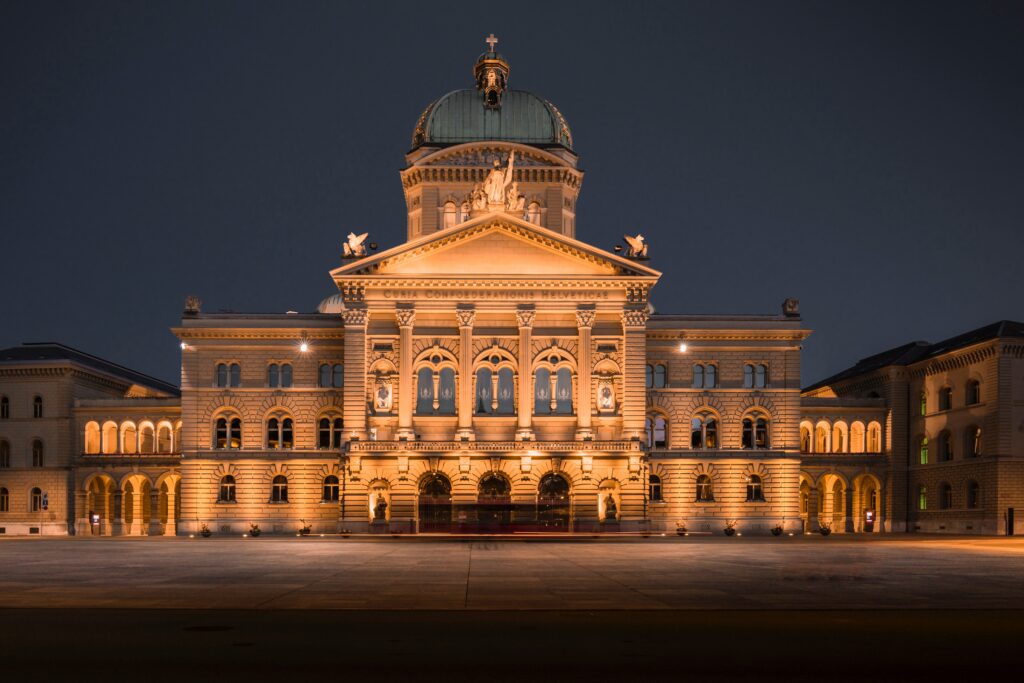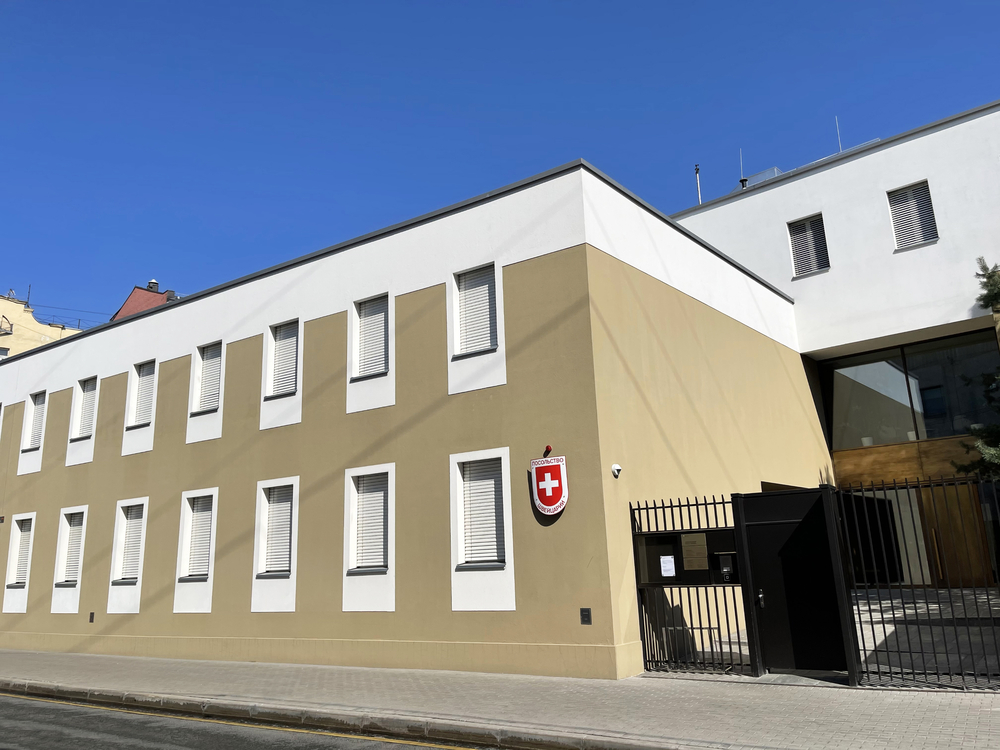Mo., Nov. 28th 2022
The Swiss Federal Council’s decision last week to put price caps on Russian crude oil and petroleum has brought up a multitude of questions, the most notable of which is: can Switzerland ever return to a traditional definition of neutrality?

Bern last week adopted its eighth round of sanctions on Russia — this time hitting them where it hurts: oil.
Since Russia invaded Ukraine in February, Switzerland has slowly waded into a pool it has not swum in before – being led by the hand by the EU. The Alpine nation began with freezing the assets of Russian oligarchs with known ties to Russian President Vladmir Putin. It seized homes and restricted some Russian imports. Swiss banks froze all Russian accounts and Swiss businesses shut down their Russian branches. Switzerland banned all Russian gold to its refineries. Switzerland restricted all travel with Russia. And by summer, President Iganzio Cassis angekündigt that Switzerland would ban all imports, exports and services with the warring nation.
Last week’s decision cap prices on Russian crude oil and petroleum marks the eighth round of sanctions on Russia (for reference, 80 percent of Russian oil is traded through Geneva). Should Switzerland continue to follow in the EU’s footsteps, the new price cap on oil could evolve into restrictions on “iron and steel products, aerospace goods, and goods of economic importance to Russia,” as well as bans on services such as architectural, engineering, legal and IT with Russian companies and the Russian government, according to Swiss government officials.

President Cassis shakes hands with Ukrainian President Zelensky in October. Switzerland’s continued support of Ukraine signals a step away from neutrality, according to Russian officials (Photo: Ignazio Cassis’ Twitter account).
What is Swiss neutrality in 2022?
With each round of sanctions, Switzerland has become a bit more divided between those who support the measures and those who warn that the country is becoming less and less neutral.
Right-wing Parliament members say the sanctions have already violated Switzerland’s neutrality. The leader of the Swiss People’s Party (SVP) Christoph Blocher has said that the Switzerland’s sanctions are “abetting the death of Russian boy soldiers.” The backlash against Switzerland’s sanctions has also given rise to the Pro Schweiz/Pro Suisse movement that seeks to codify a more traditional definition of neutrality into Switzerland’s constitution. The group has already begun collecting signatures so that it can be put to a voter referendum.
Left-wing Swiss Parliament members say more can be done to support Ukraine amidst war. Liberal Party leader Thierry Burkart has urged Switzerland to join a NATO partnership. Social Democrats say the country could work more with the EU. And even the leader of the Center Party (Mitte) Gerhard Pfister says Switzerland should re-define its War Materials Act which prohibits the country from sending weapons and ammunition to countries that will then send it on to Ukraine. Pfister says this is prescient as “we too are being defended by Ukraine.”
So far, Switzerland has stopped short of violating the War Materials Act – a move that has been widely criticized by other EU nations, such as Germany.
Germany’s defense minister Christine Lambrecht has been the most outspoken critic of Switzerland’s refusal to bend its War Materials Act. Lambrecht has been writing angry letters to her Swiss counterpart Viola Amherd for months, calling for Switzerland to send 12,000 35mm rounds of Swiss-made ammunition for Gepard air defense tanks. The tanks have been used to defend Ukraine against Russia’s air missile attacks, especially on its Black Sea coast where Ukraine is trying to export wheat. Lambrecht went so far as to accuse Switzerland of aggravating famines in African countries that need Ukrainian wheat.
Switzerland has formally refused Germany twice, most recently reminding the country that it had no problem with Switzerland’s neutrality during World War II when Germany benefitted from its principles. (Read more: Tracing Nazi gold through Switzerland).
To be fair, Switzerland’s interpretation of neutrality has varied wildly over the past few decades. It did not stop the country from sending troops on EU military missions, nor prevented Swiss soldiers from working with NATO. Neutrality was invoked in 2021 when Switzerland was asked to allow NATO airplanes to fly weapons through Swiss airspace. Switzerland has credited its support of Ukraine – housing refugees and providing food, shelter and medical supplies on the ground – to its commitment to humanitarian aid, and not taking sides during a conflict.

The Swiss Embassy in Moscow in 2021 – before Switzerland sanctioned Russia and possibly irretrievably broke its relationship with the nation.
Neutrality in other parts of the world
Since the invasion of Ukraine, neutral countries such as Finland and Sweden have applied for NATO memberships.
Meanwhile in neutral Austria, an open letter signed by 50 diplomats, politicians, military experts and entrepreneurs warned against entering into any sort of relationship with NATO as “dangerous for our country.” They asserted in the letter that a neutral Austria in a mediating role contributes more to peace than joining a military pact. That said, Austria has been an EU member since 1995; and therefore, has been part of the EU sanctions on Russia.
And even in neutral countries that are not interested in joining NATO, such as Ireland, they are beefing up their military and defense departments. Defense minister Simon Coveney has called for a “fundamental rethink” of the country’s military after a government review found that it “lacks a credible military capability to protect Ireland.”
“Moscow is watching these domestic debates closely,” writes Brookings Institution director Constanze Stelzenmüller in the Financial Times. She added that a Russian embassy spokesperson in Bern said the Kremlin “would not be able to ignore” a Swiss rejection of neutrality. But what is left up to interpretation is if Switzerland has already taken that step or not.
Dieser Artikel darf frei weitergegeben und nachgedruckt werden, vorausgesetzt, es wird auf den Originalartikel verwiesen.
